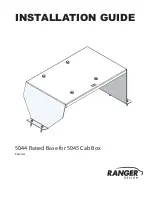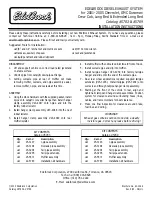
Towing a Trailer
Your car is designed primarily to carry passengers and a normal
amount of luggage. Although your car is capable of towing a trailer,
there will be an effect on handling, performance, braking, general
vehicle and tire durability and fuel economy.
The weight of the trailer plus its cargo must not exceed a total
of 1,000 Ibs. (450 kg).
The gross vehicle weight must not exceed the Gross Vehicle
Weight Rating (GVWR) indicated on the Certification label (see
page
160
). The gross vehicle weight is the total weight of the
car, driver, passengers, luggage, hitch, and trailer tongue load.
The total weight supported by each axle must not exceed the
Gross Axle Weight Rating (GAWR). The front and rear GAWR's
are shown on the Certification label (see page
160
). The
distribution of luggage and passengers in the car, as well as the
tongue load and hitch weight should also be considered in terms
of the GAWR, which is the maximum amount of weight that
should be supported over the front and the rear axles. You
should have your car and trailer weighed at a commercial
weighing station to check both the GVWR and GAWR's to
confirm that the total weight and weight distribution are within
safe driving limits.
The maximum trailer tongue load must not exceed 100 Ibs. (45
kg). Cargo should be distributed so that the tongue load is
approximately 10% of the total weight of the trailer and its
cargo. This is done by distributing approximately 6 0 % of cargo
weight toward the front of the trailer and 4 0 % toward the rear.
Never load the trailer so that the back is heavier than the front.
This will seriously affect vehicle handling. Be sure the cargo is
secured so that it will not move during driving.
(cont'd)
TRAILER WEIGHT
TONGUE LOAD
Maximum: 1,000 Ibs (450 kg)
Maximum: 100 Ibs (45 kg)
















































